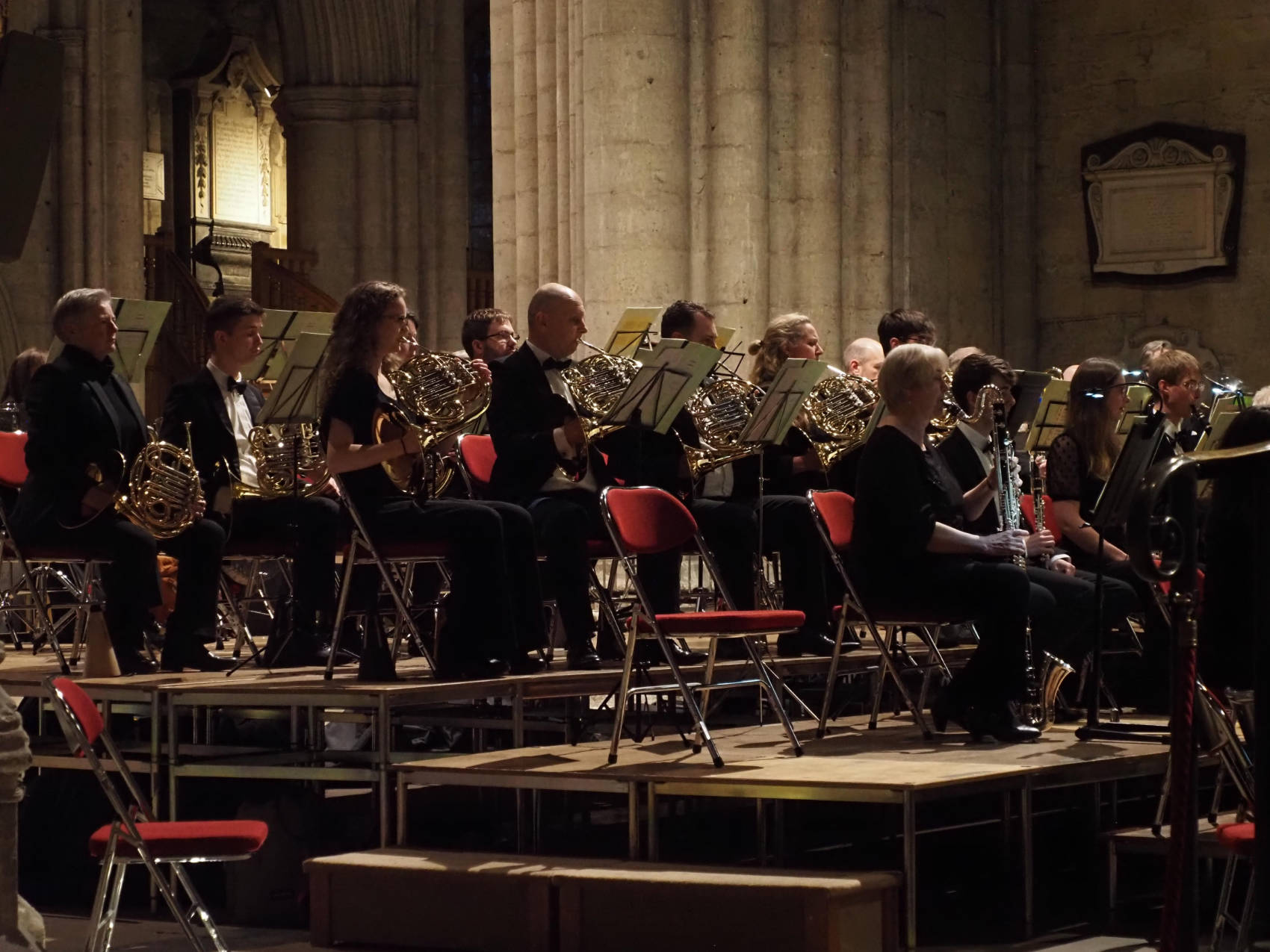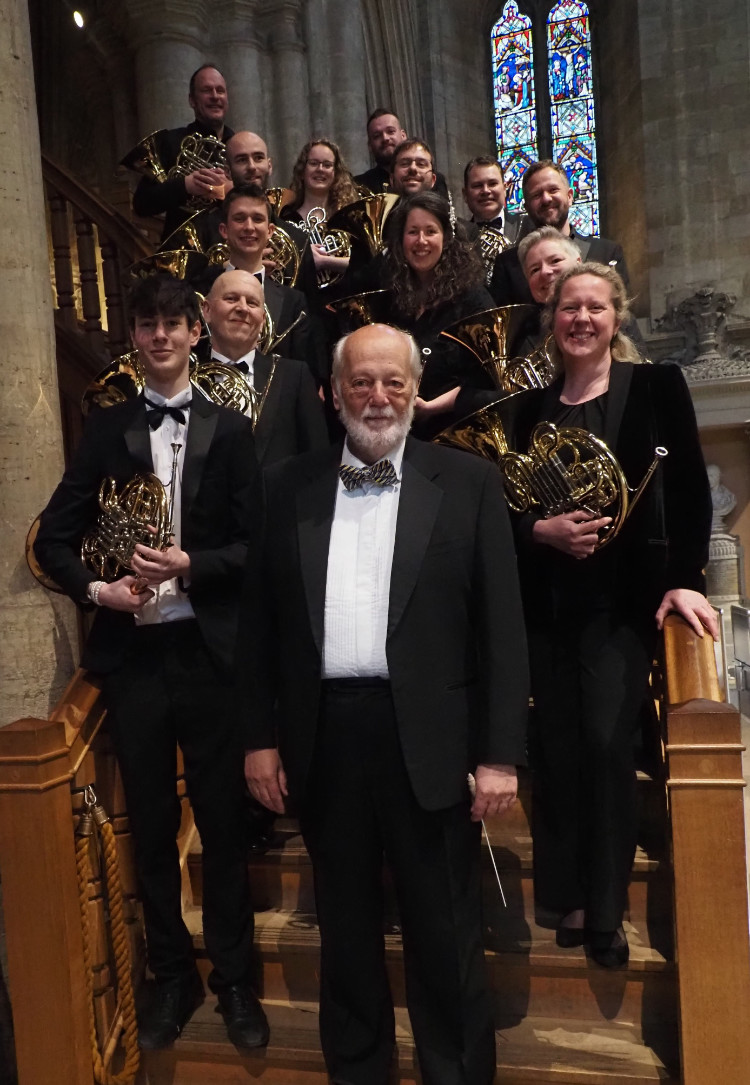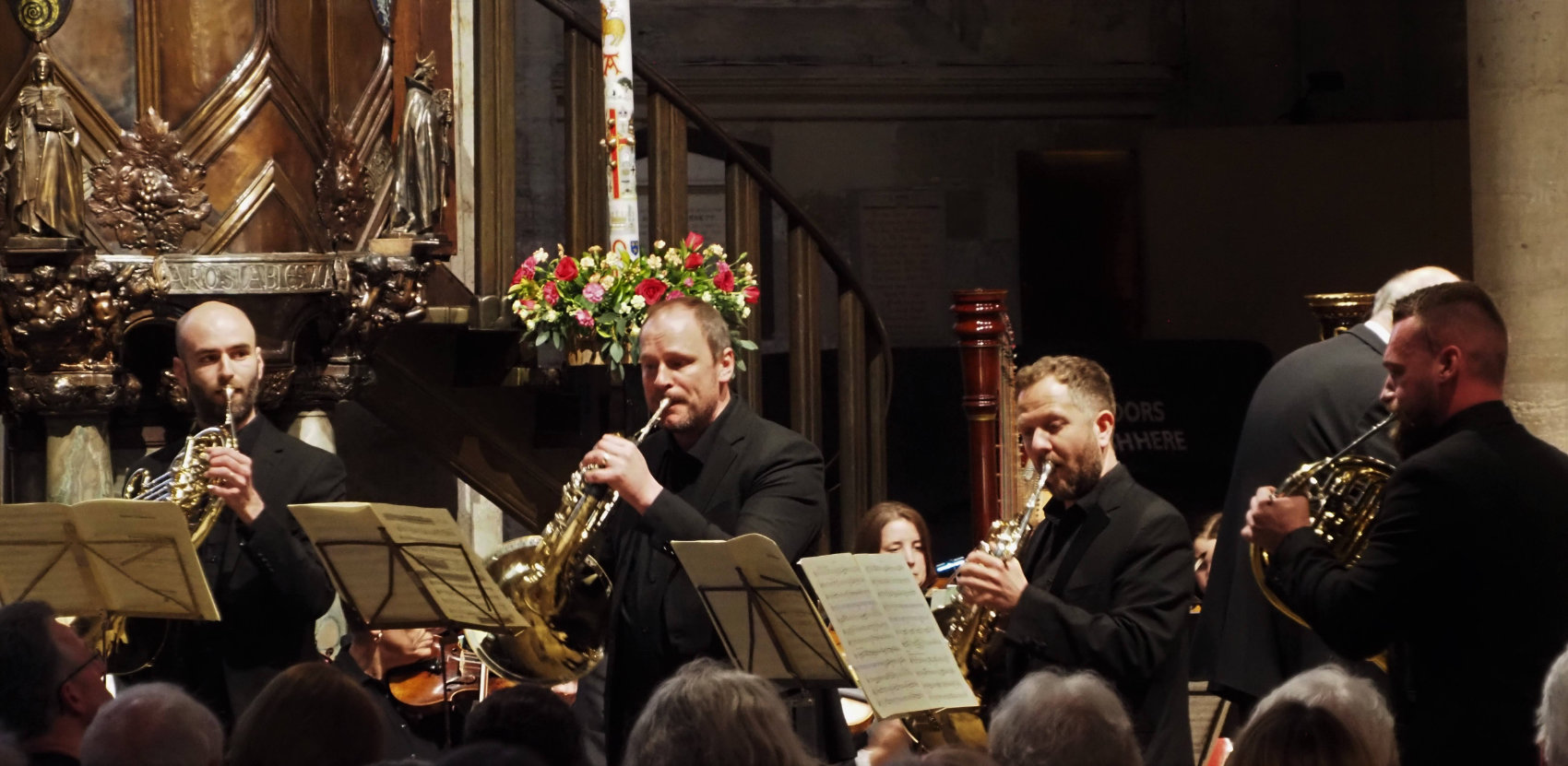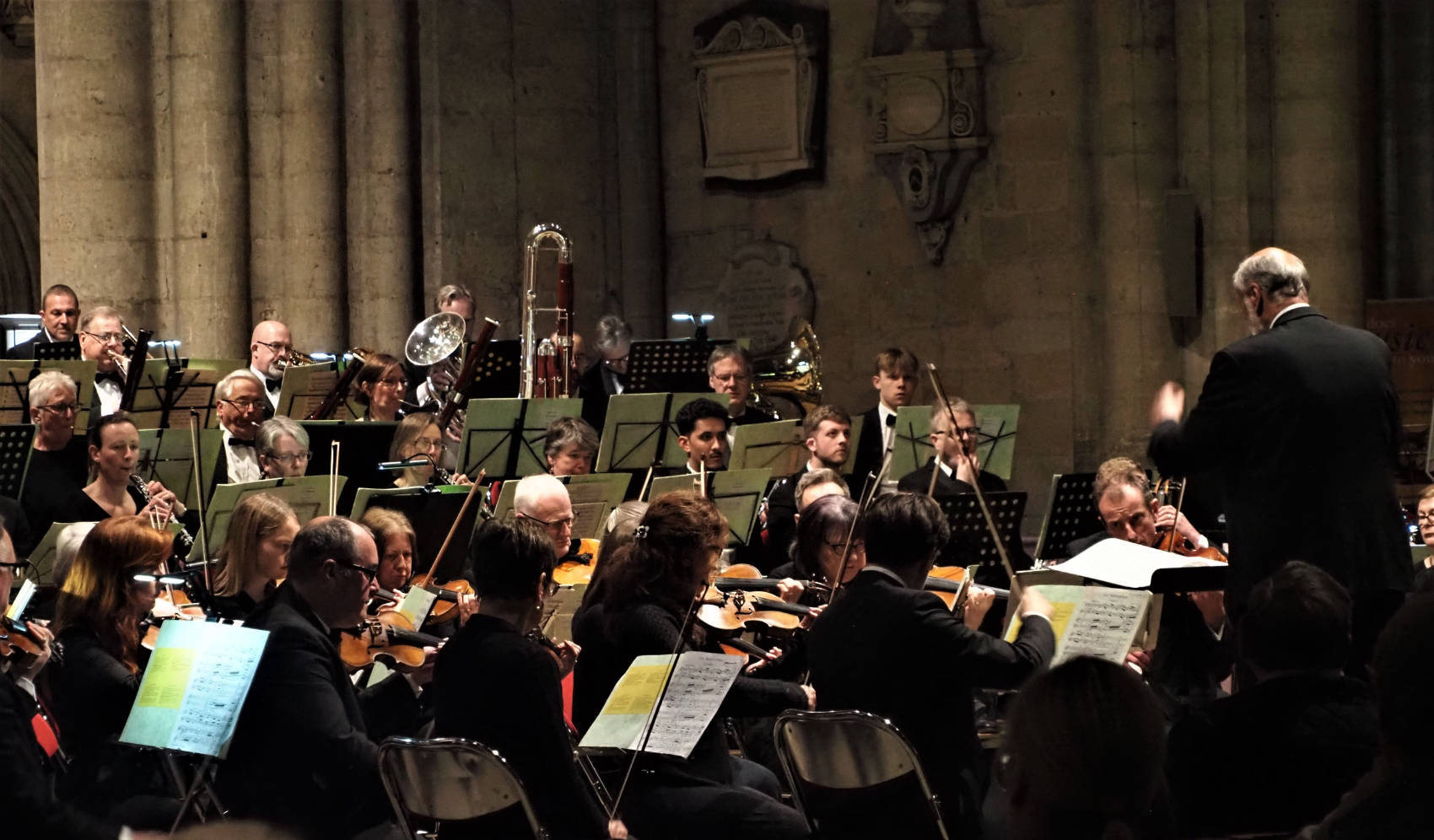On Saturday 22 April 23, St Cecilia Orchestra joined forces with the Horns of Opera North for a spring concert of Horns and Heroes, dedicated to the memory of Baroness Masham of Ilton, late President of the orchestra. Xenophon Kelsey’s characteristically deft programming combined Tchaikovsky’s well-loved Romeo & Juliet Fantasy Overture, Schumann’s rarely heard Konzertstück for four horns and Strauss’ monumental Ein Heldenleben.
The low lighting in the cathedral made for a rather dramatic setting for the Tchaikovsky: the ensemble was tight from the very first chords, leading into resonant pizzicato strings beneath dreamy woodwind chords, both leaving enough room in the texture for the harps. The crescendo was exciting; the Allegro’s rhythms were strikingly unanimous all the way to the razor-sharp percussion at the back, although a little of the attack was lost in the acoustic. The famous ‘love’ theme, introduced by the cor anglais with a full, rich tone, was played throughout with relish by an orchestra which needed no second invitation to latch onto its Rachmaninoff-like qualities – following its Piano Concerto marathon last October. Given the programme’s title, it feels a little churlish to suggest that the horns were occasionally a little too prominent, though – to be fair – only when the composer decided to give them accents in an accompanying passage. However, the bassoons’ blending with the lower strings was superb, while the final pages were soaked in a powerfully Russian depth.
There can’t have been too many concerts in the cathedral featuring thirteen French horns. The four soloists – Alex Hamilton, John Pratt, Sam Yates & David Tollington – played as one ‘super’ instrument, trading phrases effortlessly and displaying impeccable ensemble in the chordal passages. Given the full building, the lower notes didn’t always carry quite as far as the rest, but the (notated) top E was stunning, as were the bravura passages towards the end; moreover, Schumann’s copious dynamics and articulations were scrupulously observed in a committed and sublime delivery of the composer’s message, from the semiquavers to the dolce writing in the Romanze. Meanwhile, the orchestra was the perfect accompanist, finding the precise balance to support the soloists yet let them through. From the blinding light of the opening chords, Kelsey’s players immediately found a new set of colours to contrast the Tchaikovsky; a highlight was the crystalline flutes and piccolo, whether atop the orchestra or crowning the horns – both in perfect time. The Sarabande Romanze quickly settled into its graceful step; the transition to the finale was masterful, the fortissimo interjections displaying punch while maintaining the thread of the music and preparing for the joyful rhythms – whose attack this time did travel fully down the Nave.
After the interval, the audience settled down to Strauss’ 50-minute tone poem Ein Heldenleben. From the off, this performance was marked by clarity of texture and rhythm, yet with all of the sumptuous warmth required. It isn’t possible to do justice to all the delights offered, but The Hero was full of nobility and grandeur, the clarinets making a fine job of the early fireworks, while the Adversaries, in their woodwind cacophony (and pedantic tubas), made it virtually impossible not to feel sympathy for the dejected theme. For the Companion, Richard Fletcher gave a breathtaking account of the fearsome violin solo (balanced well by first the accompaniment, later by the oboes in duet), while the harps’ intricate writing came through beautifully. The trumpets’ fanfares were chilling when launching the Battle, the percussion’s advance thrilling, yet all the contrasts of texture were kept wondrously clear throughout the forest of extended virtuosity, with all of the brass able to pierce through, laser-like, whenever required. When the full orchestra took up the relentless battle rhythms, the effect was terrifying. Kelsey’s superb command of pacing allowed the recapitulation to be the welcome homecoming of the hero’s theme, while the triangle made a very pleasing appearance in Strauss’ self-quoting Works of Peace, whose untroubled flow felt like a vast, serene river. Though the music may fade gradually away from this point, the Hero’s Retirement still finds taxing demands to inflict upon its performers, yet the orchestra was heroically up to them all, maintaining perfect clarity as the strings, then percussion, then wind and brass melted into the night. All performers deserve the highest praise: this was a stunning performance and a privilege to attend.











A beautifully written piece. Unfortunately missed the concert but the critique is superb.